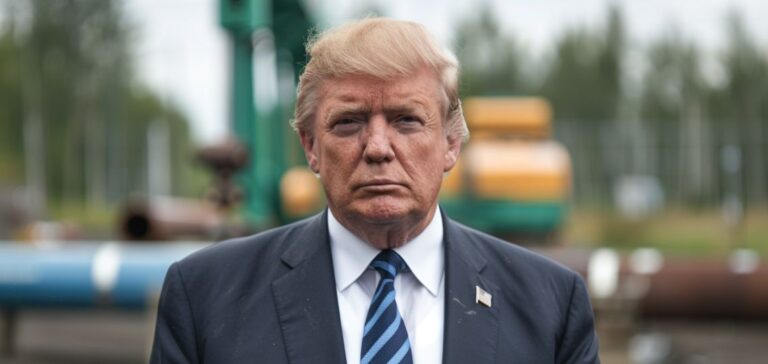On March 5, 2025, U.S. President Donald Trump announced his intention to relaunch a major pipeline project in Alaska, designed to deliver natural gas to Asia. In his speech before Congress, he stated that this project, among the largest in the world, would provide gas to Japan, South Korea, and other Asian countries. According to Trump, “everything is ready” for the launch, and his administration is currently in discussions to make the project a reality.
A project discussed with Japan
The pipeline project was first mentioned by Trump in February 2025 during a meeting with Japanese Prime Minister Shigeru Ushiba. On that occasion, Trump stated that Japan had committed to purchasing record amounts of U.S. natural gas. The American president emphasised that Alaska was the ideal starting point to deliver liquefied natural gas (LNG) to Japan, due to its geographical proximity. The project aims to strengthen energy cooperation between the United States and Asian countries, particularly concerning LNG supply.
An enhanced energy strategy
This initiative is part of a series of measures taken by Trump to increase hydrocarbon production in the United States. Upon his return to power, the president declared a state of “energy emergency” and signed an executive order to overturn the ban on new drilling in certain offshore areas, a decision made by his predecessor, Barack Obama. Alaska, in particular, was one of the areas affected by this ban. However, environmental groups have contested this move in court, arguing that Trump did not have the necessary authority to overturn these protections without Congressional approval.
Growing interest from Asian countries
Beyond Japan, several other Asian countries, including the Philippines, have expressed interest in receiving liquefied natural gas from Alaska. Trump indicated that these countries have committed to making “trillions of dollars” in investments each in the project. However, to date, no foreign government has confirmed these investments, and no specific details have been disclosed regarding the financial participation of the concerned countries.






















